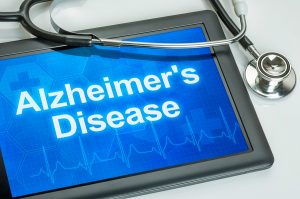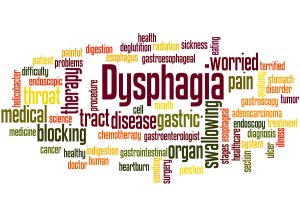Does your elderly loved one have an Alzheimer’s disease diagnosis? If so, it would be helpful if you could learn more about the symptoms of their disease. The more that you and their elderly care providers know about the symptoms they have, the more help you can give them when they need it. There are different types of symptoms that your elderly loved one may experience. Today, you can focus more on learning about the physical symptoms that your elderly loved one may develop.
Behavior Changes
Your elderly loved one could start by having behavior changes. These often occur before any physical symptoms occur. For instance, your elderly loved one’s disease may start with some memory loss. They may forget where they put their keys or have trouble holding a conversation because they can’t remember certain things. Social interactions may become more difficult for your elderly loved one. From there, as their Alzheimer’s disease progresses, they may develop physical symptoms, as well.
Physical Symptoms That May Be Noticed Early On
 In addition to the behavior changes that your elderly loved one could experience with Alzheimer’s disease, there are physical symptoms that they may develop early on, too. Some of these symptoms might include the following:
In addition to the behavior changes that your elderly loved one could experience with Alzheimer’s disease, there are physical symptoms that they may develop early on, too. Some of these symptoms might include the following:
- Picking at their nails
- Wringing their hands together
- Losing bowel and/or bladder control
- Losing the ability to do things they have always been able to do
If your elderly loved one has started displaying one or more of these physical symptoms, you may want to hire more elderly care services for them.
Advanced Physical Symptoms of Alzheimer’s Disease
In addition to the above-mentioned Alzheimer’s disease symptoms, your elderly loved one may also experience other physical symptoms. These symptoms may include the following:
- Lack of personal hygiene
- Worsened bowel and/or bladder control
- Not able to groom themselves
- Losing physical mobility
- Vision issues
- Higher risk of developing pneumonia
- Losing awareness and balance
- These symptoms will often occur as the disease progresses.
If your elderly loved one has gotten an Alzheimer’s disease diagnosis, it is important to get them the care that they need. It can be tough to handle these symptoms. However, you can hire an elderly care provider who is trained in this disease. They will be able to help your elderly loved one as the disease progresses. The elderly care provider will be able to assist your elderly loved one in the things they are no longer able to do.
Sources
https://www.nia.nih.gov/health/managing-personality-and-behavior-changes-alzheimers
https://www.nia.nih.gov/health/what-are-signs-alzheimers-disease
If you or an aging loved one is considering hiring elderly care in Phoenix, AZ, please call the caring staff at Golden Heart Senior Care of Scottsdale at (480) 284-7360. We are here to help!


 Another sign that could let you know your elderly family member is dealing with dysphagia is that she might have more saliva than usual. This can sometimes be a good thing, but for someone with dysphagia, she could start to drool or have difficulty swallowing the extra saliva. The excess saliva can also make eating and drinking more difficult, because it’s tougher for her to gauge what might be too much in one bite or one swallow.
Another sign that could let you know your elderly family member is dealing with dysphagia is that she might have more saliva than usual. This can sometimes be a good thing, but for someone with dysphagia, she could start to drool or have difficulty swallowing the extra saliva. The excess saliva can also make eating and drinking more difficult, because it’s tougher for her to gauge what might be too much in one bite or one swallow.